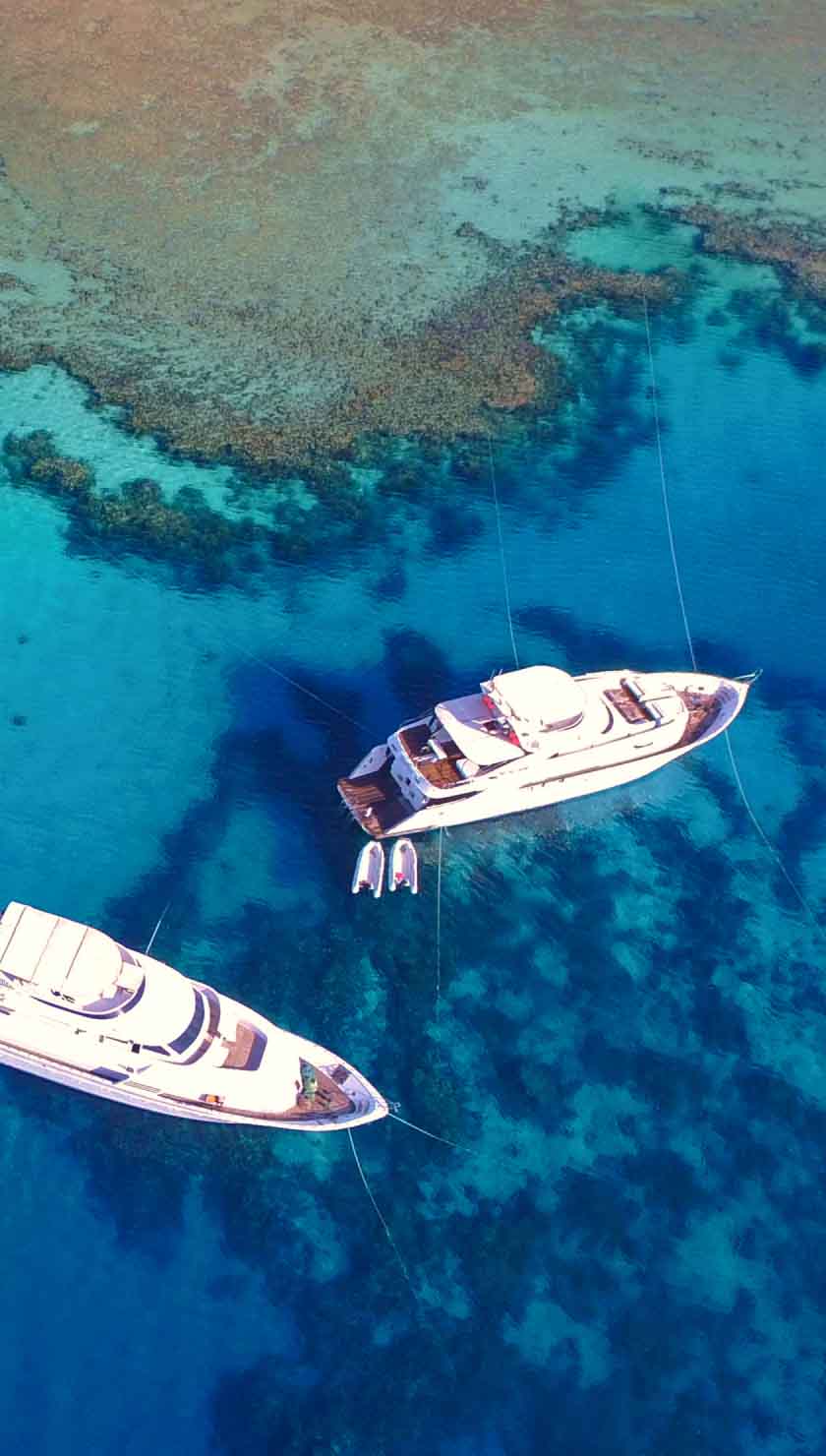Liveaboard Diving in Noonu Atoll
What To Expect On A Noonu Atoll Liveaboard
A liveaboard to Noonu Atoll, which lies at the south end of a long atoll group that crowns the north of the Maldives, will usually be running a Northern or Central Atolls itinerary. Noonu is joined by Shaviyani Atoll, above which lies the Maldives' new frontier of Haa Alifu and Haa Dhalu (the Far Northern Atolls). Noonu's location puts it in the center of the Northern Atolls action, and being connected to the far north gives it a bit extra: sharks. Sharks aren't often seen in most Northern Atolls, but Noonu is an exception.
Noonu Atoll Underwater
Maldives liveaboard diving in Noonu Atoll offers colorful thilas with plenty of soft coral, black coral, Gorgonian fans, hard coral gardens, grey reef sharks, and blacktip reef sharks. Like its Northern Atolls neighbors, Noonu enjoys many reef fish, hunted by larger predators like tuna and barracuda. The Northern Atolls topography of overhangs and caverns is present in Noonu dive sites, along with some particularly memorable and unique formations described below.
Dive Sites Of Noonu Atoll
For sharks, dive cruises visit Orimas Thila, where a particular channel hosts swarms of grey reef sharks numbering in the twenties or higher. Sharks frequent this kandu to take advantage of the spa services offered by small cleaner wrasse, which they allow inside their gills and mouths to remove parasites and detritus. Expect your dive guide to bring you to a resting point just down-current, where you can kneel comfortably without disturbing the inhabitants. This dive site is ideal for checking out a whole community of sharks doing their thing, from small juveniles to adults over three meters long.
Christmas Tree Rock is also a must-do for most Noonu Atoll dive tours. The topography here consists of large shelves of life-encrusted rock divers can peer under and swim through to search for big and small reef inhabitants. Adding to the Christmas tree imagery, small dancing fish of vibrant pink, yellow, and blue ornament the different levels of the ìtreeî with their bright colors. Reef sharks and rays rest in the dark, and large pelagics like tuna stream through the blue water off the sides. With a hard coral garden at the top, divers often cite Christmas Tree Rock as one of their favorite Northern Atolls dive sites, as well as a Maldives diving favorite in general.
Dive sites abound in Noonu Atoll, and if your dive dhoni ventures off the beaten track, local dive sites offer plenty to discover. Fairy Meadow, The Dome, and Golden Caves are just a few where healthy, varied fish life, overhangs, and colorful soft corals enter divers year after year.
Top Tips for Divers
In the Maldives, a new Green Tax of 6 USD per person per night applies to every tourist in the country. The official language is Maldivian, also called Dhivehi.
Gear to bring includes your own mask, booties, fins, and dive computer. These are personalized pieces of equipment that we donít recommend renting. An ill-fitting mask or fins can make diving virtually impossible, and a dive computer is your most important safety equipment.
Getting To Noonu Atoll
Like anywhere in the Maldives, Noonu Atoll is best dived by liveaboard; in no other way can you access so many dive sites, often near uninhabited islands or far from land altogether. The length of liveaboard itineraries that include Noonu Atoll is usually 10 or 11 nights, with a budget of around 350 euros per night. Liveaboards often combine Noonu Atoll with Baa, Raa, Lhaviyani, and potentially the Far Northern Atolls. Sometimes, itineraries also add in the Central Atolls.
Male is one of the Maldives liveaboard departure locations for Noonu Atoll liveaboards, accessible by direct flights from Dubai, Singapore, and Colombo. On liveaboards combining Noonu with the Far Northern Atolls, however, Hanimadhoo or Dharavandhoo may be the port of departure. These destinations can be reached by domestic sea plane from Male. To get to Male from Europe, America, China, India, and Australia, flights often connect through the nearer airports mentioned above.
Diving Noonu Atoll is possible all year round, but the northeast monsoon from January to May allows the calmest surface conditions. The water temperature usually stays between 27 and 30 C, and visibility between 10 and 20 meters.











